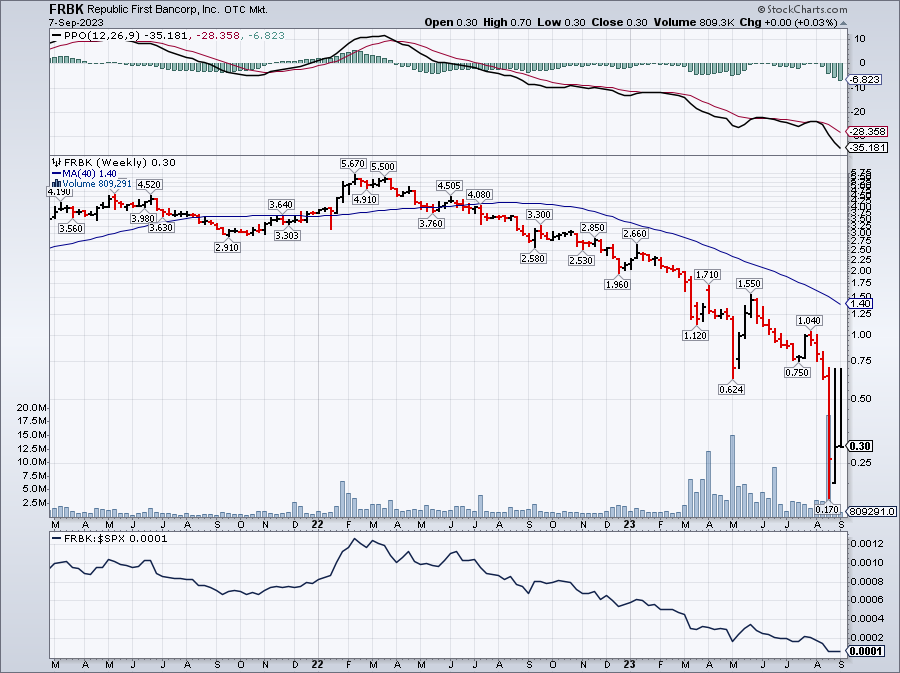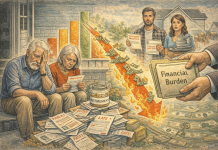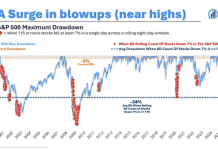 Republic First Bank (FRBK) is about done.
Republic First Bank (FRBK) is about done.
FRBK is facing financial difficulties similar to those that led to the collapse of First Republic Bank (lesson learned – don’t use those words in any combination!) earlier this year. Both banks have experienced heavy paper losses that aren’t reflected on their balance sheets due to accounting rules. Despite these challenges, Republic First has managed to retain most of its depositors, with deposits down only 10% from the previous year. However, its stock was delisted from Nasdaq, indicating a loss of investor confidence. The bank’s financial issues could put uninsured depositors at risk, as about 60% of its deposits were uninsured as of June 30.
The significant portion of uninsured deposits at Republic First raises concerns about potential losses for these depositors if the bank were to fail without an acquirer in place. Regulators fear that such a failure could trigger runs on other banks, emphasizing the importance of addressing the issue promptly – which has clearly already passed.
After our March panic, the concept of systemic risk, typically associated with larger banks, is now being discussed in the context of smaller banks like Republic First. The high proportion of uninsured deposits in the U.S. banking system has made regulators more cautious about potential contagion effects from bank failures. Secretary Yellen has invoked an exception for systemic risk to guarantee deposits at failed banks but this will be the first real test of Treasury’s resolve.
Republic First’s total equity, or assets minus liabilities, was $183 million as of June 30, according to its quarterly report with banking regulators. However, that excluded $304 million of unrealized losses on bonds that it labeled “held to maturity,” which means the losses don’t count on its balance sheet. The losses are the result of lower bond values, which declined when interest rates rose and could rebound if rates fell.
There’s nothing unusual about this, we KNOW that has been the case since last March and it’s all been swept under the rug and the market has popped 10% since then but ANYTHING that gets investors to look under the rug of these banks can put us back into panic mode very quickly so next week is going to be critical to quietly put this to bed or Financial Crisis will once again dominate the news cycle and God forbid the Republicans jump on it as a talking point!
Republic First is the third bank led by Vernon Hill, a colorful banking entrepreneur who had some dramatic career turns. He founded New Jersey’s Commerce Bancorp, known for its customer-friendly branches that were modeled on fast-food restaurants. Later he founded the U.K.’s Metro Bank with the same customer focus. He resigned from both after brushes with regulators. Hill drew criticism at both lenders, as well as at Republic First, for payments made to a company owned by his wife for design services. He resigned from Republic First in July of last year – but it looks marvelous!
Smaller banks now have an incentive to reduce the reported amounts of uninsured deposits due to the optics of appearing smaller and reducing potential expenses. The Federal Deposit Insurance Corp. (FDIC) imposed a special assessment on banks with over $5 billion in assets to cover the costs of guaranteeing uninsured deposits at banks like Silicon Valley and Signature.
Provident Bank (PFS), based in Jersey City, initially reported $5Bn in uninsured deposits as of December 31st but later revised this figure multiple times. On June 13, it reduced the number to $3.1 billion (29% of total deposits), then raised it to $4.9 billion on July 14, and subsequently to $5.3 billion (50% of total deposits) on July 28. Provident also restated its first-quarter uninsured-deposits number twice, causing further confusion.
Since Silicon Valley Bank’s collapse in March, 47 banks restated their Dec. 31 uninsured deposits downward by a total of $198 billion, a Wall Street Journal analysis showed. The FDIC was seeing problems with the numbers, too. This is why China is about to collapse – they keep pretending there isn’t a problem and, after a while the problem is too big to fix!
Before this year, having a high percentage of uninsured deposits wasn’t widely seen as a big problem. Then Silicon Valley Bank began to teeter in March. About 88% of its deposits were uninsured at year-end, which is why its customers fled when the bank ran into financial trouble. At Signature Bank, which failed soon after, 90% of deposits were uninsured. In the following weeks, dozens of lenders restated their financial reports with banking regulators to SHOW smaller year-end numbers for their uninsured deposits – yet nothing had actually changed – just smoke and mirrors.
Let’s keep a sharp eye on the financials and try to stay ahead of the curve next week.
Next week, interestingly, there is no data until Wednesday but that’s CPI and Thursday is PPI and Retail Sales and Friday is the usually disastrous Empire State Manufacturing Report along with Industrial Production and Consumer Sentiment. Then the week after that is the Fed Rate Decision.
Enjoy your rest while you can!
Have a great weekend,
-
- Phil







